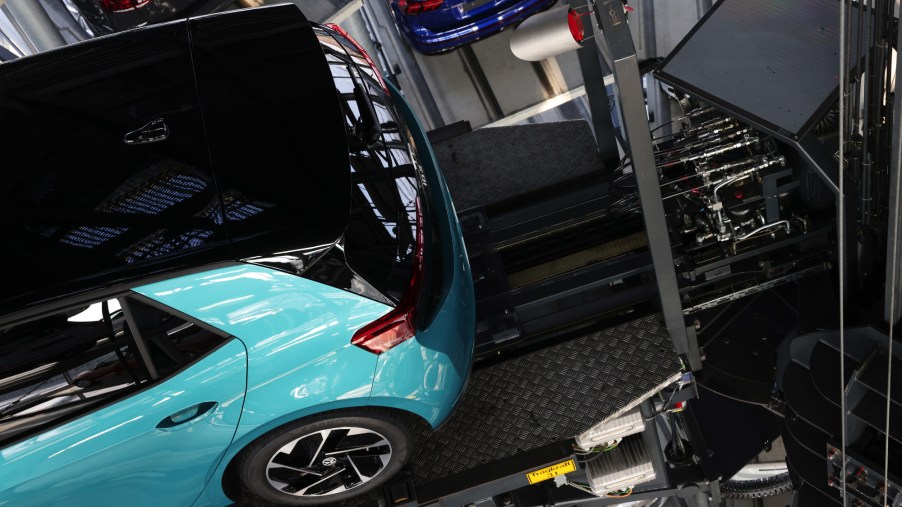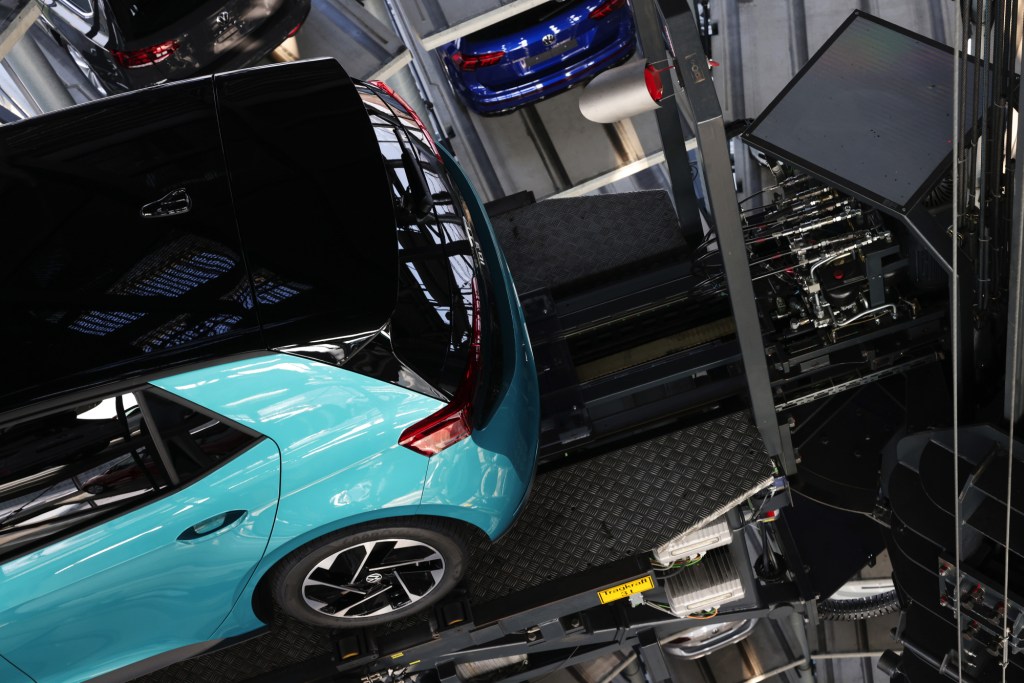
Volkswagen ID.4: How to Charge Your New Electric Vehicle
Are you interested in purchasing a new Volkswagen ID.4 but feel intimidated by the charging aspect? Don’t be intimidated! Electric vehicle charging is a pretty simple process done at home or a charging station.
Charging your Volkswagen ID.4 electric car

If you need to, you can plug your Volkswagen ID.4 into a regular outlet. A regular outlet will work if you are unsure of other options. However, you will likely want to upgrade your charger to something faster.
Using the Level 1 charger that is included with the ID.4 will net you about two miles of charge per hour, according to Inside EVs. That could take about 80 hours to fully charge. Upgrading to a higher amp charger like a 40 amp or 48 amp, you will see much faster charging speeds.
At 40 amps, you can get 27 miles of range per hour. With 48 amps, you can get around 32 miles of range per hour. This is about eight hours fo a full charge.
DC fast charging can offer a full charge in around 30 minutes. You would not find a fast charger in a home, only at a charging station.
We should note that it is not recommended to charge your ID.4 to 100% every night. This can wear down the battery faster and generally isn’t good for your electric vehicle’s life.
You will want to download Volkswagen’s Car-Net app. You can lock and unlock your vehicle, locate your car, and find charging stations with it. The app claims to allow for scheduled vehicle charging. However, some owners report it is clunky.
The electric vehicle charging network for your ID.4
While you will probably find yourself charging at home most of the time, you should get used to the electric vehicle charging network. There are many different chargers and a variety of locations you can charge your VW ID.4 at.
According to EV CHarging, there were 17,500 charging stations in 2019. Compare that to 168,000 gas stations. In other words, that is 1 in 74 public charging stations to 1 in 1600 gas stations.
You can use an app for stations like PlugShare or EVPassport to locate the nearest ChargePoint or Electrify America station. These apps can help save you time when you need a specific charger.
Charging stations do not have to be dedicated to chargers, either. Places like hotels, shopping centers, and grocery stores usually have a few electric vehicle chargers. In conclusion, you have options to charge your EV.
Home charger options
It is recommended that an electrician professionally install your home charger. There are many different brands of home chargers for your EV.
Also, installing a charger might qualify you for tax rebates or credits. You can check your state’s available credits through the U.S. Department of Energy State Laws and Incentives page. Check on this before deciding on your charger.
Volkswagen has the ID. Charger, but currently, it is only available in Europe. The charger is available for around $600 to $1,300 for a more powerful option. The ID. Charger might be in the U.S. in the future.
Auto Guide listed a few chargers that might suit your needs. The JuiceBox® Pro 40 Electric Car Smart Home Charging Station retails for $599 at Walmart.
The JuiceBox is made in the U.S. and has an app to help schedule charging when rates drop. You can hardwire or plug it into a 14-50R outlet. You can also use an adaptor to work on a regular outlet.
In addition, the ChargePoint Home Flex WiFi Enabled EV Charger. This one offers up to a $1,000 federal tax credit on the $699 cost. It offers flexible amp settings from 16 to 50 and comes in both hardwired and plugin options.
The ChargePoint charger offers 6-50 or 14-50 outlet options. The app allows you to schedule charging and pick the right amp for your home.



